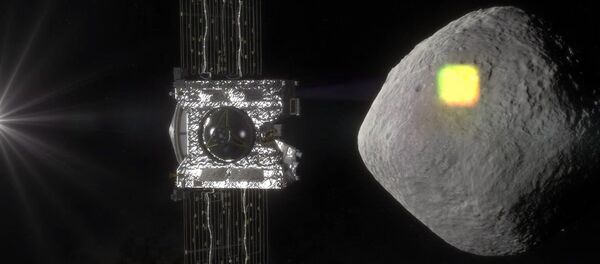The nature and origin of 13 fast radio bursts, known as FRBs, is still unknown, however astronomers suspect that the signals all came from the same source 1.5 billion light years away, the BBC reported, citing research published in the journal Nature.
Such an event has only been reported once before by a different telescope.
READ MORE: NASA Satellite Discovers 'Cool' Neptune-Like Exoplanet
"Knowing that there is another suggests that there could be more out there. And with more repeaters and more sources available for study, we may be able to understand these cosmic puzzles — where they're from and what causes them," said Ingrid Stairs, an astrophysicist from the University of British Columbia (UBC).
This particular set of signals was registered by the CHIME observatory, located in British Columbia's Okanagan Valley, which consists of four 100-metre-long, semi-cylindrical antennas that are able to scan the entire northern sky each day.
The telescope has been in use for only a year, detecting 13 of the radio bursts almost immediately, including the repeater.
“We have discovered a second repeater and its properties are very similar to the first repeater. This tells us more about the properties of repeaters as a population,” said Shriharsh Tendulkar of McGill University, Canada.



